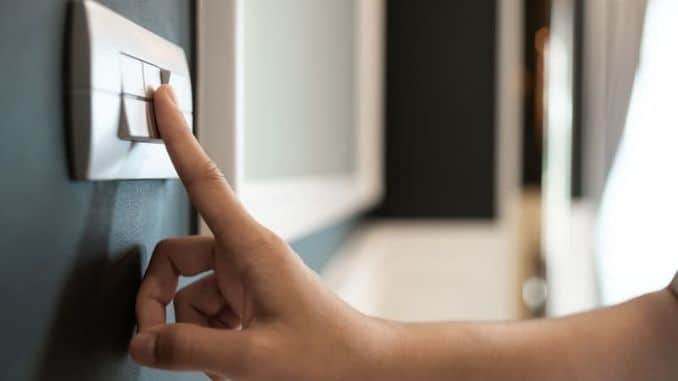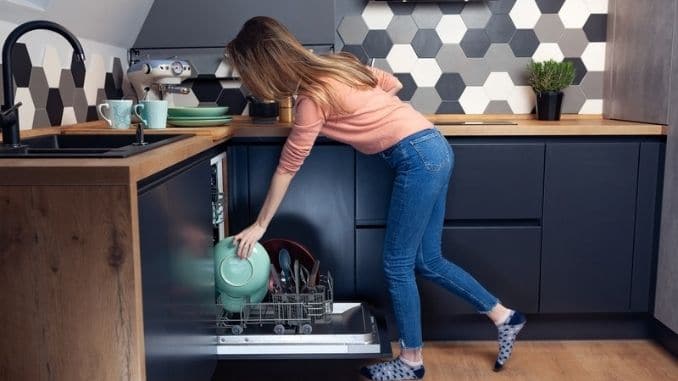
Bedtime routines aren’t just for toddlers. Adults benefit from a predictable night routine just as much as little ones ― perhaps even more. The way you ease into bedtime can affect how well you fall asleep, how often you wake during your slumber, how long you sleep and the overall quality of your rest.
Creating and practicing a few good bedtime habits is surprisingly easy and ever so beneficial. We’ve got some excellent tips for creating your ideal bedtime routine. You likely won’t use all of these tips. Choose the ones that seem natural to incorporate into your evening.
Think Ahead
Begin with the end in mind. During the day, cut off all caffeinated beverages about six hours before you plan to hit the sack. It takes good, long time for caffeine to stop affecting your nervous system. Stick to water or herbal tea in the afternoon and evening.
Also, limit alcoholic beverages. According to Scott Trimble at PositiveRoutines.com, “It’s scientifically true that drinking alcohol before bed helps you fall asleep, but it comes at the cost of your overall sleep quality. The more alcohol you drink, the longer it will take you to reach REM sleep and the fewer total hours of REM sleep you will likely enjoy. So, even if a cocktail helps you fall asleep faster, it won’t help you stay in that good, deep, necessary sleep. We say limit your nightcaps if you want the best sleep you can get.”
Create a Calm and Inviting Place to Sleep
If you don’t feel peaceful when you enter your bedroom, consider changing things around until you do. Walk into your bedroom during the daytime and take note of how you feel when you cross the threshold. Does it feel chaotic? Calming? Do your feelings change at all upon entry?
You can alter the vibe of your sleeping area easily by adding plants, removing work stuff and gadgets, creating a better organizational system or changing the position of your bed and furniture. Play around with the atmosphere of your bedroom and create a peaceful resting place.
Choose a Bedtime That Fits Your Schedule
If you plan to wake up around 6 a.m., plan your bedtime for 10 p.m. or 11 p.m. Adjust it to fit the amount of sleep your body needs. If you find yourself overtired and irritable, make changes to the schedule until you feel good upon waking and you’re alert during the day.
Begin Your Routine Two Hours Before Bed
This won’t work every night, but on evenings when you’ll be at home in the hours preceding your regular bedtime, begin to prepare yourself for sleep a couple of hours before you plan to close your eyes.
Kill the Lights
A bright home at bedtime sends energizing signals to your body’s internal clock. If you want to help your body wind down and get ready to rest, use as little light as you can in the hours before bed.
At least two hours before you plan to retire for the night, turn off any unnecessary lights in your home. I like to use hallway lights a couple of hours before bedtime at my house. None of us hang out in the hallways, but the light from the hall emits just enough brightness into adjacent rooms so that it’s easy to see what we’re doing, but not too bright.
Night lights and Christmas lights are also excellent gentle lighting options for the hours before bed. Use bright overhead lighting only when it’s necessary for the task at hand. For example, no one wants to use the bathroom in the dark.
Set Up Your ‘To-do’ List for Tomorrow
Often, we feel wired before bed because we’ve got several things on our minds that need to be done. Take time to make a “to-do” list for tomorrow as you end your day. Write out all of the things that you’d like to get done. This practice alone will help you get your mind off of your task list and into a restful state.
Tidy Up
It’s difficult for me to rest when my home is messy. So, every night, there are a few things that I do or my spouse does before we head up to bed. I like to have the dishes washed, the kitchen counters cleaned and the floors swept ― at the very least. On nights when we are all home early and have extra time, we also straighten up the other downstairs rooms. When things are tidied up before bed, I have a feeling of finality for the day, and I rest better.
Look for Five-minute Tasks to Put You Ahead
Scan tomorrow’s “to-do” list for quick tasks you can cross off before bed. Then, look around the house for other things you can do to make tomorrow easier. Unload the dishwasher, put in a load of laundry, pack lunches, prep breakfast, and so on.
Take Certain Supplements
Certain minerals are best taken before bed. Magnesium and calcium should be taken at night and will help you fall asleep and stay asleep when taken together. Taking these supplements is always a part of my bedtime routine.
Enjoy Herbal Tea or Hot Milk
If you have trouble winding down in the evening, consider a cup of hot milk or chamomile tea an hour or two before bed. It’s important not to drink too many fluids just before you sleep. So, limit it to around 8 ounces.
Remember Your Self-care
There are certain things that we all need to do before bed. Teeth brushing and face washing are a couple that comes to mind. Consider things that you may want to add that would be beneficial to your overall health as well. If your dentist has been nagging at you about flossing, put some dental floss on your nightstand and do it just before you go to sleep. If you’d like to get more defined abdominal muscles, commit to 20 crunches before you get into bed. Yoga is another fantastic way to wind down before you close your eyes.
Create a concise list of beneficial self-care activities that you can complete at the end of your day. Then, add them to your bedtime routine.
Use Gadgets and Screens Mindfully
Researchers out of Harvard Medical School have indicated that blue lights emitted from cellphones, computers, televisions and other devices can suppress the body’s ability to produce the sleep hormone melatonin temporarily. This means that it can take a person longer to fall asleep if they are exposed to too much blue light at night.
You don’t have to give up screens at night altogether. Unwinding with a family movie night or a mindless sitcom before bed is OK. Just don’t keep your screens too close to your face. Use a device that you can position at least 3 feet away from your eyes like a laptop or television instead of a phone. You can also purchase a screen cover that blocks out blue light only.
Include Gratitude
Many people recommend keeping track of what you’re thankful for and expressing it each day. At night, when I pray with my kids, we speak aloud our gratitude and give thanks for the beautiful things that happened throughout the day. We mention small things like the fantastic dessert we tried, the new shoes we purchased and the sunny day. We also include the big things we’re thankful for like the house in which we live, the family unit we enjoy and our health.
You might also keep a gratitude journal and write in it every night before bed. Giving thanks at night, in some way, is a lovely way to honor the day and recognize the wonderful things ― big and small ― that enrich us.
Employ Essential Oils
There are several wonderful smelling essential oils you can diffuse or rub onto your temples at night to help you ease into bedtime. Lavender, vetiver and roman chamomile are oils that will promote a restful night’s sleep.
Consider Adding Noise
A ceiling fan, white noise machine or a playlist of calm, instrumental music are all excellent sounds to fill your bedroom and help you sleep well.
Review the Day’s Events
As you lie in bed, look back at the day’s events. Start with the earliest part of the day you can remember and try to replay it in your mind. It’s a worthwhile practice to help you recall the happenings of the day and contemplate them a bit.
Author of “The Practice: Simple Tools for Managing Stress, Finding Inner Peace, and Uncovering Happiness,” Barb Schmidt wrote, “Reflection is our final exercise of the day. This is when we scan our day and ‘officially’ let go of everything that happened in the day — all the ups and downs — so that we can wake up the next morning in the new day without attachments or regrets over what happened the day before. Without yesterday’s worries and stresses weighing us down, we can begin a new day with a peaceful mind and heart.”
Mentally reviewing the day’s events is an excellent way to unwind and end your day. Add this to your bedtime routine for a smooth transition into a peaceful rest.
Include Prayer or Meditation
Anywhere from five to 30 minutes of quiet prayer or meditation can help you settle into a good night’s sleep.
Use a Sleep Mask
My sleep mask is an item that is a must-have item for me at night. It blocks out any light from my husband or kids and helps me to settle in for deep sleep. I cut some fabric in the shape of my sunglass lenses and sewed a little pouch out of it. I filled it with a small amount of dry rice and lavender flowers. I use it every night as part of my bedtime routine.
Breathe Deeply
Sheila Patel, M.D. says, “When you breathe deeply and slowly, you activate the parasympathetic nervous system, which reverses the stress response in your body. Deep breathing stimulates the main nerve in the parasympathetic nervous system — the vagus nerve — slowing down your heart rate, lowering your blood pressure, and calming your body and mind.”
Spend a few minutes breathing deeply as you lie in bed. This is a calming and healthful part of your bedtime routine.
Create a Bedtime Routine That Works for You
Mix and match some of these suggestions to make a bedtime routine that fits your lifestyle and meets your unique needs. Rest well.
For a joint-friendly workout program, make sure to check out our Low Impact High Results Workout, here!






